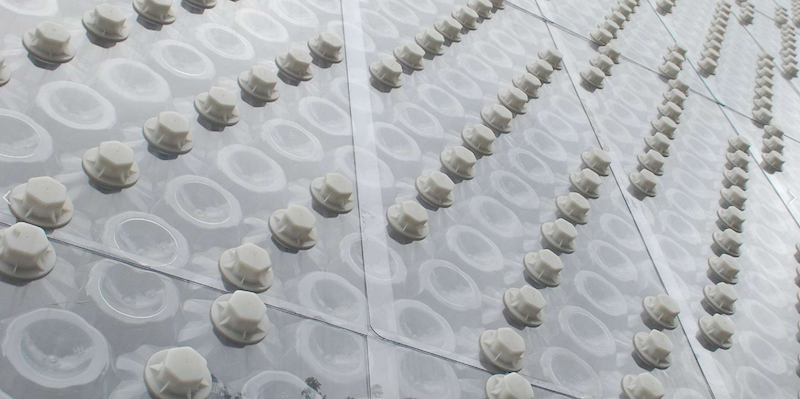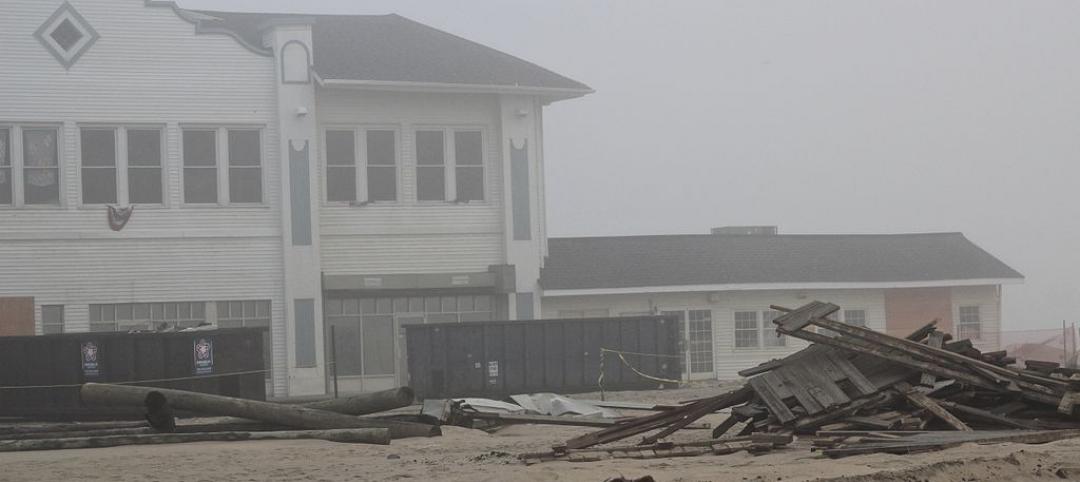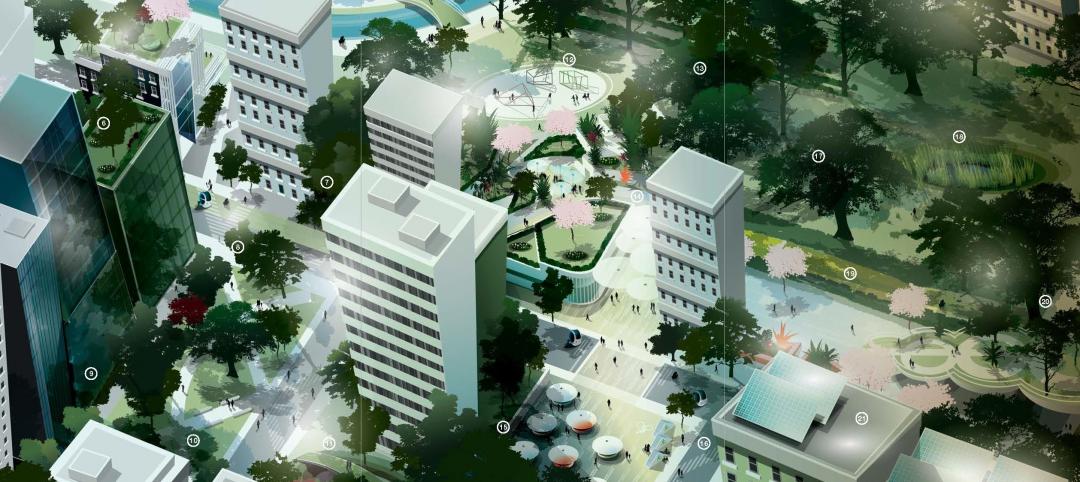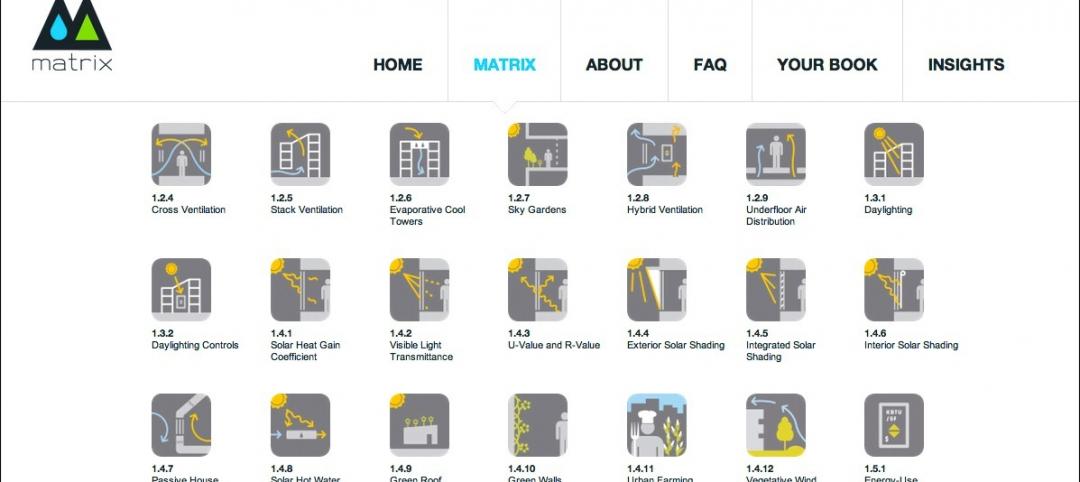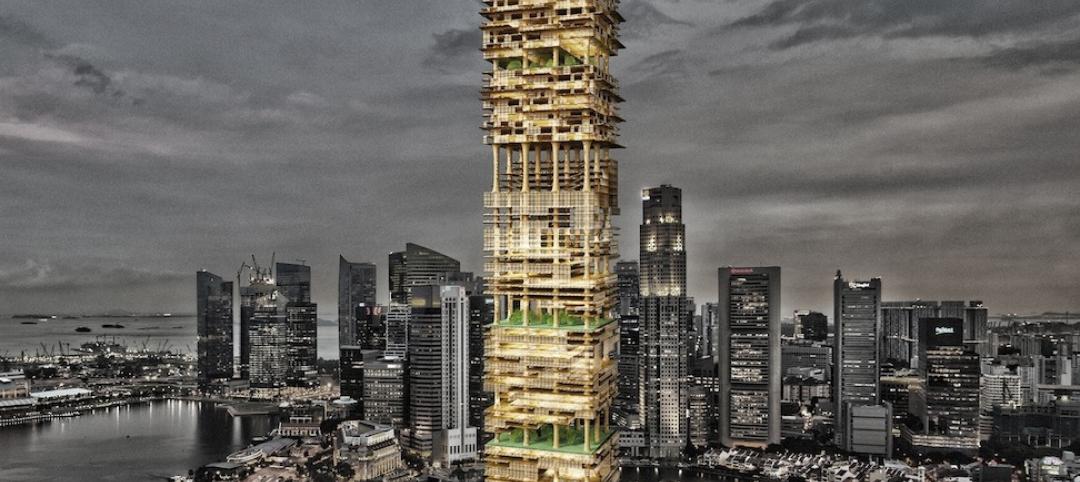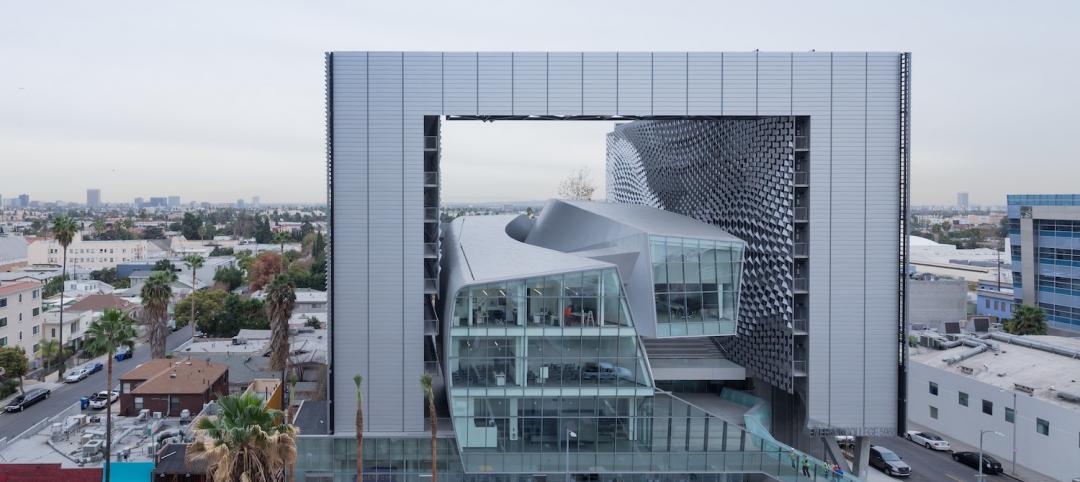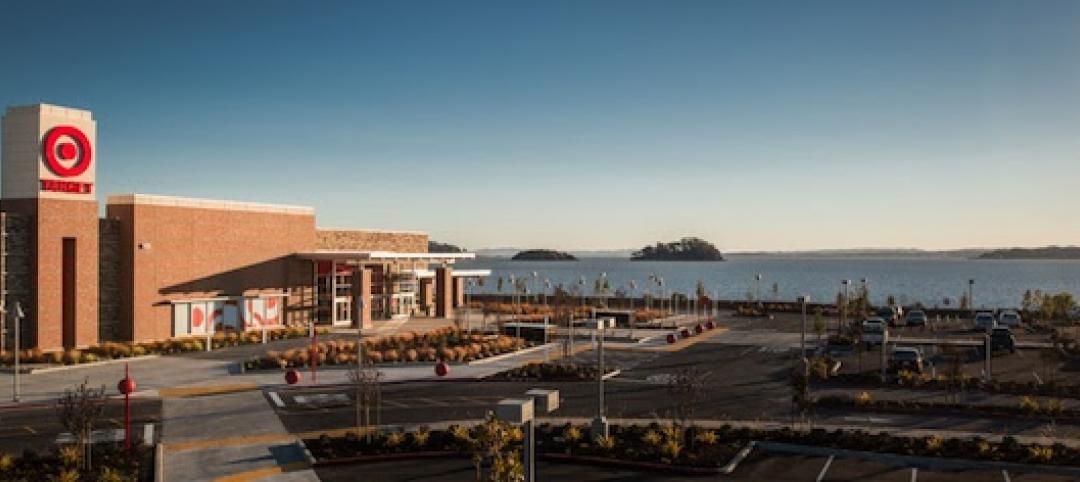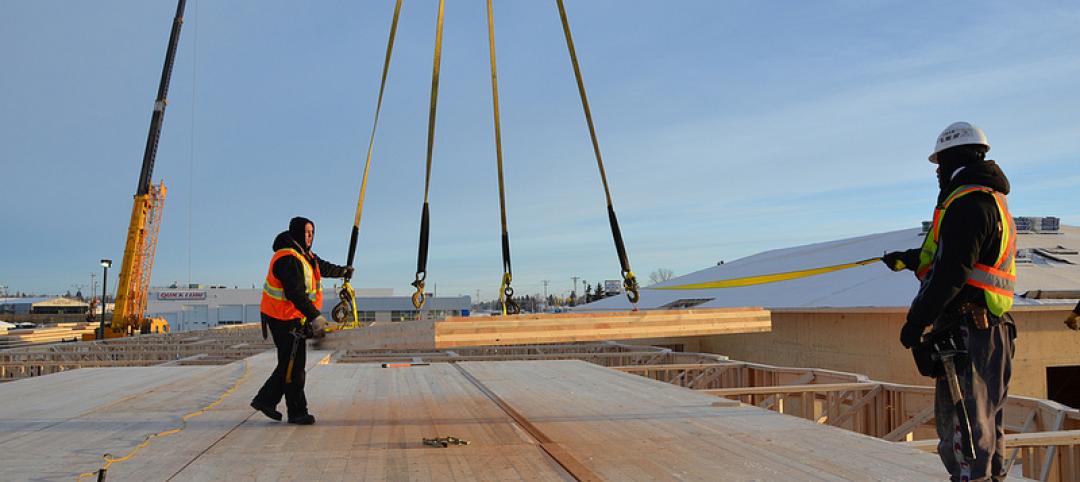Plastic represents a bit of a nodus for the world: as useful as the material is, it can be take a toll on the environment when it isn’t disposed of correctly. Miniwiz, a company founded by architect and structural engineers Arthur Huang and JarvisLiu, is trying to find easier, more practical solutions for recycling and reusing materials like plastic that often times find their way into landfills or the environment.
Take the EcoArk Pavilion in Taipei, for example, which uses 1.5 million recycled plastic bottles throughout its design.
The nine-story structure represents the first fully functional, public building made of Polli-Brick, a building material made from 100% recycled Polyethylene Terephthalate Polymer. It is translucent, naturally insulated, and durable and uses a 3D honeycomb self-interlocking structure that eliminates the need for chemical adhesives. Polli-Brick is extremely lightweight and is just 1/5 the weight of standard curtain wall systems.
The EcoArk Pavilion uses Polli-Brick throughout its public spaces, which cover an area the size of size basketball courts. These public spaces are kept cool thanks to a combination of natural ventilation, an exterior waterfall that bathes the structure in water collected during rainstorms, and Polli-Brick’s high insulation properties. The building also uses embedded solar power to run the LED lighting systems at night. All of these aspects mean the building operates with a zero-carbon footprint.
Despite weighing 50% less than a conventional building, the EcoArk Pavilion is fire-resistant and strong enough to withstand high winds.
Originally constructed in 2010 for the Taipei International Flora Exposition, the structure has since been converted into a public museum.
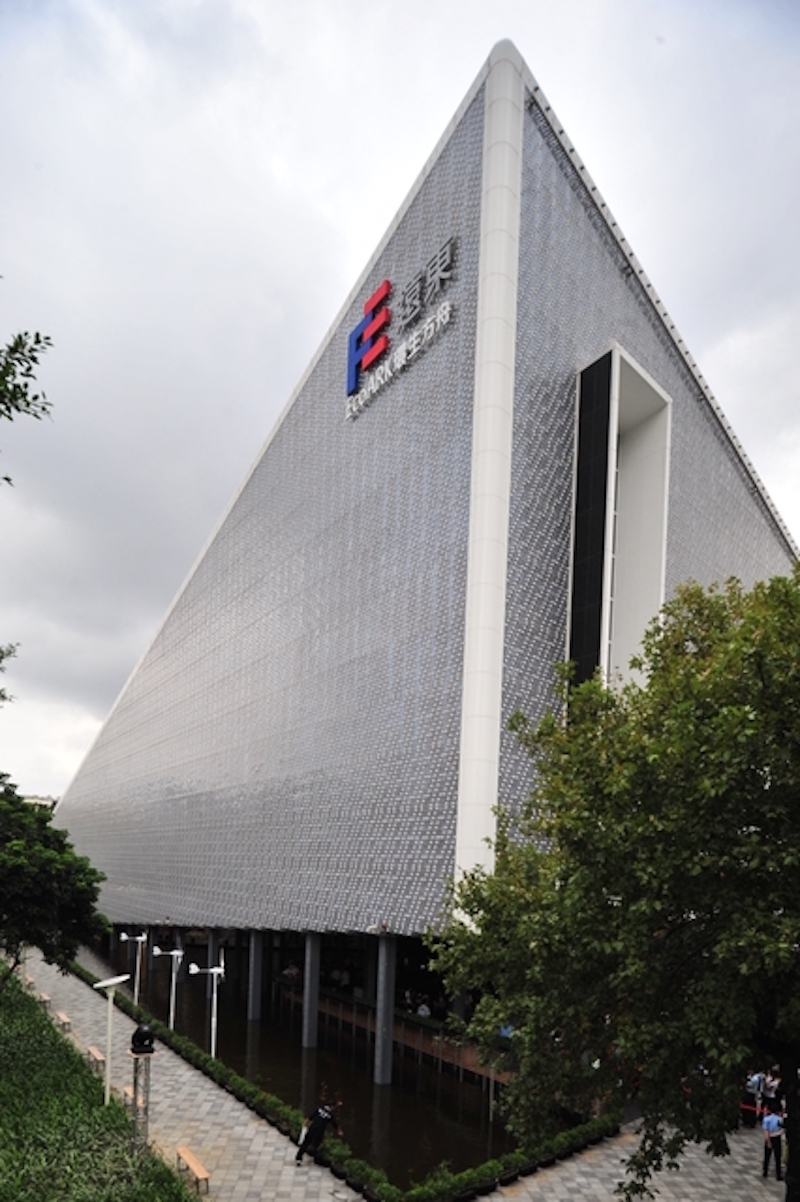 Courtesy Forgemind ArchiMedia, flickr Creative Commons
Courtesy Forgemind ArchiMedia, flickr Creative Commons
Related Stories
| May 13, 2014
Drexel University case study report: Green Globes cheaper, faster than LEED
GBI’s Green Globes certification process is significantly less expensive to conduct and faster to complete than LEED certification, says Drexel prof.
| May 13, 2014
19 industry groups team to promote resilient planning and building materials
The industry associations, with more than 700,000 members generating almost $1 trillion in GDP, have issued a joint statement on resilience, pushing design and building solutions for disaster mitigation.
| May 12, 2014
10 highest-rated green hotels in the U.S.
The ARIA Sky Suites in Las Vegas and the Lenox Hotel in Boston are among the 10 most popular hotels (according to user reviews) to also achieve Platinum status in TripAdvisor's GreenLeaders program.
Smart Buildings | Apr 28, 2014
Cities Alive: Arup report examines latest trends in urban green spaces
From vertical farming to glowing trees (yes, glowing trees), Arup engineers imagine the future of green infrastructure in cities across the world.
| Mar 26, 2014
Callison launches sustainable design tool with 84 proven strategies
Hybrid ventilation, nighttime cooling, and fuel cell technology are among the dozens of sustainable design techniques profiled by Callison on its new website, Matrix.Callison.com.
| Mar 25, 2014
Sydney breaks ground on its version of the High Line elevated park [slideshow]
The 500-meter-long park will feature bike paths, study pods, and outdoor workspaces.
| Mar 21, 2014
Forget wood skyscrapers - Check out these stunning bamboo high-rise concepts [slideshow]
The Singapore Bamboo Skyscraper competition invited design teams to explore the possibilities of using bamboo as the dominant material in a high-rise project for the Singapore skyline.
| Mar 7, 2014
Thom Mayne's high-tech Emerson College LA campus opens in Hollywood [slideshow]
The $85 million, 10-story vertical campus takes the shape of a massive, shimmering aircraft hangar, housing a sculptural, glass-and-aluminum base building.
| Feb 27, 2014
Target converts former prison dump into latest big-box store
Target's new San Rafael, Calif., location was built on the site of the former San Quentin prison dump.
| Feb 20, 2014
5 myths about cross laminated timber
A CLT expert clears up several common misconceptions and myths surrounding the use of wood as a building material.


